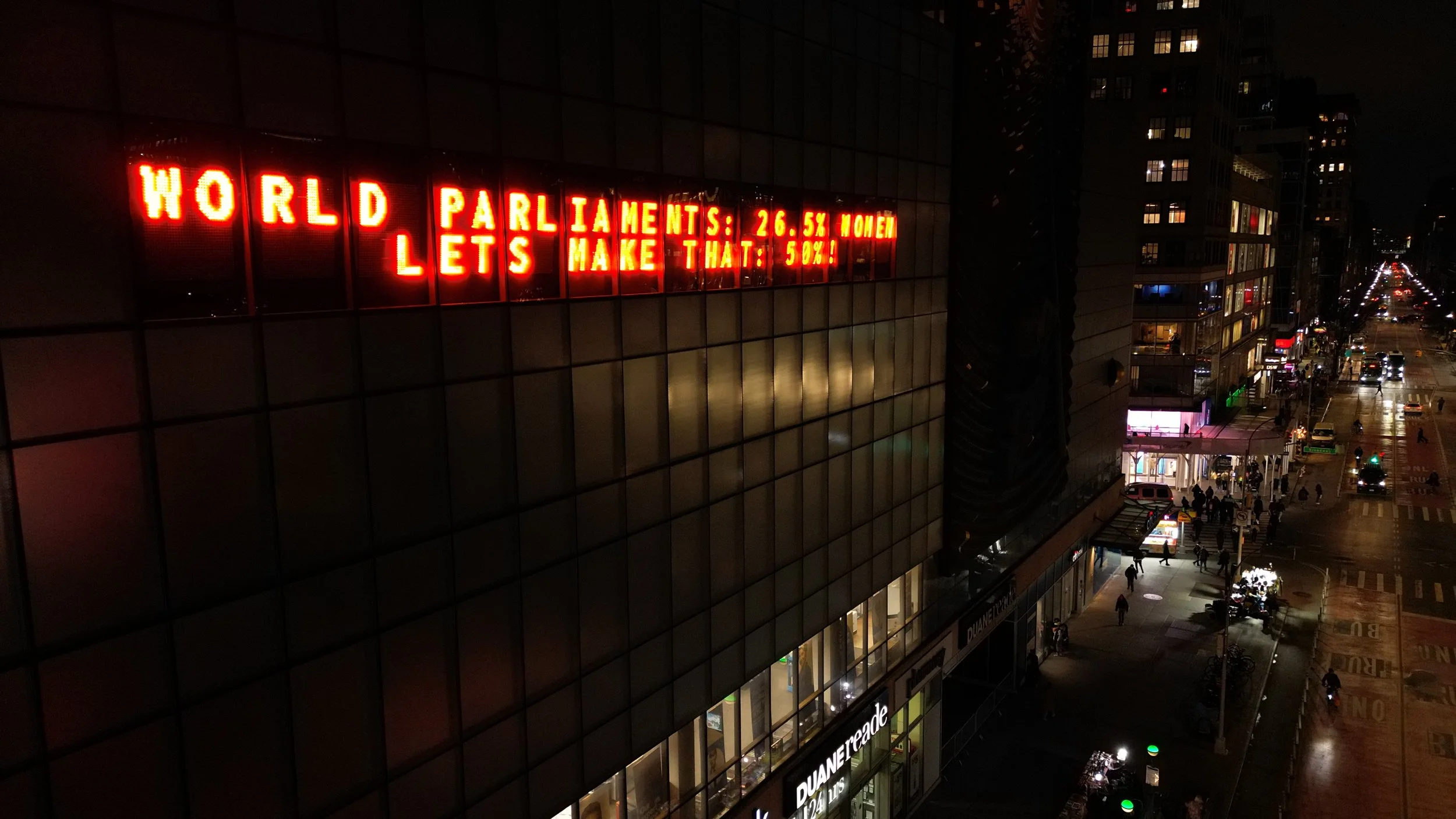Design Museum London
Summary
This lifeline tracks the global averages of women in all national parliaments, according to IPU Parline. The demand to achieve gender parity remains a key factor in all negotiations and agreements to combat the adverse effects of climate change.
Overview
Years of research has shown that when women participate in decision-making spaces, not only is there more effective risk management in their communities, they show a greater commitment to promoting climate policies that result in the reduction of carbon dioxide emissions. Multiple studies show a clear positive correlation between female representation in parliaments and the robustness of climate action. One study, for example, showed that in countries with 38% or more women legislators, per capita forest cover increased considerably.
The Paris Agreement recognized that women's participation in decision-making was essential to achieve climate justice, and established gender equality and the empowerment of women as key for policy design. In a 2019 report, the International Institute for Sustainable Development states that women must be part of any effective adaptation to climate change.
Zaya at ATL, Brasilia, 2022
Impact
This lifeline is additionally important, because women – due to the disadvantaged position that historical inequalities have perpetuated – are more adversely impacted by climate breakdown/disruptions than men. It is a core principle of climate justice to take leadership from the most impacted, and to recognize they are also more likely to better understand the solutions that are needed. The state of vulnerability women and girls face, especially in times of crisis, is reflected in access to resources, assets, services and participation in decision-making spaces, causing them to be more affected than the rest of the population. Women are also more likely to experience episodes of gender-based violence after disasters, which reduces women's adaptive capacity and resilience, weakening the future resilience of communities, as has been observed in different regional contexts.
“Increasing women’s representation at every level of government is essential not only for protecting our climate, but for improving our democracy as a whole. We cannot sufficiently address or resolve the most prominent issues facing our society today, like the climate crisis, when not everyone has a seat at the table. Electoral reforms such as ranked choice voting help to promote gender balance and have the power to create a truly representative democracy. We must advance reforms like these to ensure that the needs of the people are being met by those who have the power to enact change.”
How to use this lifeline
Use this lifeline to emphasize the need to fast track gender parity as a climate solution in your local community.


